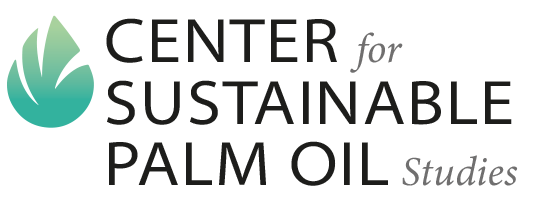
The month of July has seen an accelerated interest around the world in deforestation, largely due to the growing recognition that deforestation is a major driver of the increased risk of exotic disease outbreaks. A new report by the United Nations Environment Programme (UNEP) explains how deforestation is driven by expanding industrial activities.
These activities result in human settlements and behaviours increasingly penetrating previously pristine wildlife and natural ecosystems, including tropical forests. The result is a greatly enhanced risk that zoonotic diseases jump from animals to humans. Deforestation is not the only driver of this risk, but the UN report claims it is a major one.
The UN report is part of a much wider trend, an emerging awareness of the importance of tackling deforestation to avoid deeper risks to our societies. This includes greater awareness for the costs modern social and economic behaviours inflict on the global environment, thereby driving deforestation.
Recent reports connect the dramatic upsurge in illegal deforestation in Brazil, for example, to cattle farming and soy production. While this undoubtedly implicates Brazil, other countries and regions bear their shares of responsibility in the damage done to the natural environment.
For example, according to a recent study published in the journal Science, as reported on by the BBC, as much as one-fifth of Brazil’s soya exports to the European Union (EU) could be “contaminated” by illegal deforestation. The study also concludes that at least 17% of beef exports to the EU may be linked to such illegal deforestation.
The BBC report is significant because it shows that the majority of all soya (65%) comes from countries with high deforestation rates. For instance, the land required to meet the UK’s annual demand for soya over a two-year period (2016 – 2018) equalled an area approaching the size of Wales. (This is according to environmental groups like the World Wildlife Fund.)
These escalating concerns about deforestation come as the UN released its flagship Global Forest Resources Assessment report, published by the Food & Agricultural Organisation (FAO). The report warns that the world’s total forest area continues to decrease. Altogether, the world has lost some 420 million hectares of forest since 1990. According to this report, the top countries driving the highest levels of deforestation over the last decade are: Brazil, the Democratic Republic of the Congo, Indonesia, Angola, Tanzania, Paraguay, Myanmar, Cambodia, Bolivia and Mozambique. It is important to note that Malaysia is not on this list.
Despite the welcome concern about deforestation, the UN report has some positive news: “The rate of forest loss has declined substantially over the past three decades. The annual rate of deforestation was estimated at 10 million hectares between 2015-2020, compared with 12 million during 2010-2015. The area of forest under protection has also reached roughly 726 million hectares: nearly 200 million more than in 1990.”
Unsurprisingly, the growing attention on deforestation as a driver of global risks like pandemics has been accompanied by greater attention on the issue from policymakers, especially in the European Union. Ongoing developments in Brussels have seen new discussions around more robust rules to tackle deforestation.
This last month, the European Parliament’s Environment Committee and other committees have been actively developing a new EU legal framework purportedly “to halt and reverse EU-driven global deforestation.” Many of their discussions mention palm oil at the top of the list of commodities considered to be major drivers of deforestation.
Such mention apparently explains the EU’s current policy of boycotting palm oil for biofuels.
A welcome development in the EU’s thinking is the emerging realisation that deforestation cannot simply be stopped through such boycott mechanisms.
This recognition builds on discussions and reports that emerged in June, in which EU policymakers have called for greater attention to inclusive partnerships with third countries, more focus on supporting smallholder farmers, and developing certification schemes which are actually legally enforceable at a national level.
With the Malaysia Sustainable Palm Oil, or MSPO, scheme, Malaysia is the first country in the world to have put in place a national, mandatory, and sustainable palm oil scheme enforceable by law, wherein appropriate fines and penalties are in place for producers who fail to adhere to the scheme.
Sadly, despite welcome mention of the MSPO scheme in June, the EU has largely neglected to go further and engage with MSPO to properly understand the scheme and see how a more cooperative approach to tackling deforestation can be developed by supporting sustainable palm oil rather than simply boycotting it.
It is worth pointing out that the EU’s focus on palm oil as the key plank of its anti-deforestation policy is increasingly being questioned. For instance, this month the University of Exeter published a new study finding that “for one impact measure of all major oil crops – threatened species per volume produced – coconut, together with maize, affect far more species than all other major oil crops, including palm oil.”
The study shows that while coconut oil affects twenty species, this is significantly higher than palm oil (3.8), olive oil (4.1) and soybean (1.3). Yet there is currently a comparatively disproportionate focus by the EU on palm oil, as opposed to these other drivers of deforestation (including beef consumption, for instance). The study rightly concludes: “What ethical consumers need is unbiased information based on transparent and objective measures that address multiple concerns, costs and impacts, and allow fair comparisons between products.”
Yet the misconception that it is palm oil which is the primary driver of deforestation continues to find its way into observations by scientists and environmentalists in ways that are often reductive and simplistic. For instance, a major Boston University-funded study correctly noted the link between deforestation and risk of pandemic. But one of its authors, Les Kaufmann, in mentioning the drivers of deforestation, primarily pinpointed palm oil.
This sort of narrative, without proper qualification, tends to link up the idea of a heightened risk of pandemics with palm oil. In the eyes of some, this can lead to simplistic but flawed solutions such as the idea of simply boycotting palm oil. Yet it is important when contemplating solutions to deforestation for these conclusions to be data-driven.
A recent spate of articles in The Ecologist magazine, the world’s leading environment platform published from the UK, has done an important service in highlighting the limitations of Kaufmann’s approach. The articles remind readers of numerous recent scientific studies which warn that simply boycotting palm oil does not solve the problem of deforestation, because demand remains constant; instead of palm oil, then, this demand is met by alternative food products, which use more land.
The Ecologist refers to a study in the prestigious journal, Global Environmental Change, which attempts to attribute responsibility for deforestation-linked carbon dioxide emissions to different commodities and regions. This and other studies, including one by the European Union, show that the biggest drivers of deforestation are beef and soy, largely from the Americas. Palm oil production, particularly in Malaysia, plays a much smaller role.
Of course, this should not be used as an excuse for complacency. Far from it – The Ecologist goes on to provide welcome coverage of recent progress being made under the MSPO scheme, noting that rates of deforestation in Malaysia under said scheme have declined consecutively, year on year, for the last three years. The Ecologist laments that there has been negligible scientific or international scrutiny of the MSPO scheme, but points out that the few independent experts who have witnessed the scheme in action have noted its extraordinary sustainability credentials.
The Ecologist also provides a detailed analysis of some of the domestic challenges to the MSPO scheme being implemented, and calls on the EU to do more to support MSPO – and even recognises that the success of the MSPO scheme could be used as a powerful model to be applied in and by other countries and regions.
The growing recognition that the MSPO scheme offers a genuine path for sustainability in palm oil production – and potentially even a model for other commodity producers to follow – is an important development on the world stage. That this is beginning to happen even in Brussels and among some of the most prominent voices in the Western environmentalist movement is also significant.
Unfortunately, this has not yet translated into a shift in policy or legislation at the EU level. But here at CSPOS, we hope that this is the beginning of a more constructive dialogue between Malaysia and other international partners in developing real solutions to stopping deforestation, empowering conservation, and ensuring that commodities like palm oil are produced sustainably.







